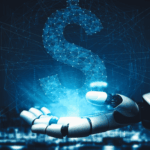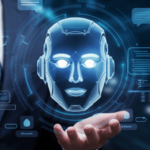AI Chatbot CRM Integration — Architecture, Benefits & Implementation Guide (2025)
By Vishal Shah January 20, 2025
Why AI Chatbots Need CRM Integration (Not Standalone)
AI chatbots are no longer simple support widgets. When connected to your CRM, they become an intelligent automation engine that drives personalized customer experiences across sales, support, and marketing.
With CRM integration, chatbots can:
✔ Fetch customer details automatically
✔ Trigger workflows & update CRM entries
✔ Qualify leads in real time
✔ Create tickets & log inquiries
✔ Predict customer intent using AI
✔ Provide consistent responses across channels
This blog explains the full architecture, benefits, use cases, and step-by-step implementation for enterprises.

How AI Chatbot → CRM Integration Works
- User interacts with chatbot
Website / App / WhatsApp / FB Messenger / Custom Portal - AI Engine detects intent
- NLP
- LLM Models
- Knowledge Base
- Context Memory
This usually requires a strong integration layer built by Backend Engineering
- Chatbot queries CRM
CRM APIs → Salesforce / HubSpot / Zoho / Dynamics / Freshsales - CRM returns the data
Customer profile, tickets, deals, past interactions - AI responds + updates CRM
- Create a new lead
- Update ticket status
- Add conversation logs
- Trigger automation workflows
- Analytics & reporting
Every interaction improves future predictions.
Key Benefits of AI Chatbot CRM Integration
Automated Lead Qualification
Chatbot collects name, email, industry, budget, use case → pushes to CRM → lead scoring triggers instantly.
This process is often extended using automated workflows across marketing, sales, and support systems.Personalized Customer Interactions
“Welcome back John, your order #1120 is ready for delivery.”Reduce Support Costs by 40–60%
AI handles tier-1 queries → agents focus on complex issues.24×7 Support with Zero Downtime
Faster Sales Pipeline Movement
Chatbot books meetings, nurtures leads, updates CRM stages.Accurate CRM Data — No Manual Entry Mistakes
Unified Experience Across Channels
Website → App → WhatsApp → Email → Social → CRM stays in sync.
CRM Platforms Commonly Integrated with AI Chatbots
- Salesforce
- HubSpot
- Zoho CRM
- Microsoft Dynamics 365
- Freshsales
- Pipedrive
Each has REST APIs + webhooks → enabling real-time, bidirectional sync.
Step-by-Step Implementation Plan
Step 1 — Define Use Cases
- Lead qualification
- Ticket creation
- Customer profile lookup
- Order status
- Appointment booking
- FAQ automation
Step 2 — Select Chatbot Platform
Enterprise recommended options:
- Custom ChatGPT-based bots
- Rasa / Botpress
- Dialogflow CX
- IBM Watson
- AWS Lex
Step 3 — Connect CRM Using API Keys
Example (HubSpot API):
import requests
url = "https://api.hubapi.com/crm/v3/objects/contacts"
headers = {"Authorization": "Bearer ACCESS_TOKEN"}
response = requests.get(url, headers=headers)
Salesforce uses OAuth 2.0 + Apex REST
Zoho uses OAuth 2.0
Dynamics uses Azure AD App Registration
Step 4 — Configure Conversation Flows
- Intent detection
- Entities & slots
- CRM fields mapping
- Error handling
- Validation messages
Step 5 — Train AI Models
Sources:
- CRM knowledge base
- FAQs
- Product catalog
- Ticket history
- Support transcripts
Step 6 — Sync with CRM Workflows
Examples:
- If user requests order tracking → Create support ticket
- If user asks for demo → Create lead → Assign to SDR
- If user asks billing question → Route to finance
Step 7 — Testing & Quality Assurance
- API load testing
- Intent accuracy
- Data mapping validation
- Security + authentication testing
Step 8 — Deploy to Channels
Website widget
Mobile app
Facebook Messenger
Slack
Teams
Security Considerations for Enterprise-Grade Chatbots
- OAuth 2.0 for CRM authentication
- Role-based access control
- Data masking & PII protection
- API throttling
- SOC2 / HIPAA (if applicable)
- Audit logs for all CRM updates
If your chatbot touches identity, access, or sensitive user records, align with an enterprise security foundation such as Enterprise IAM Solution












